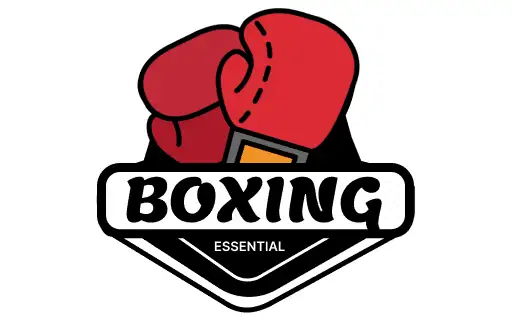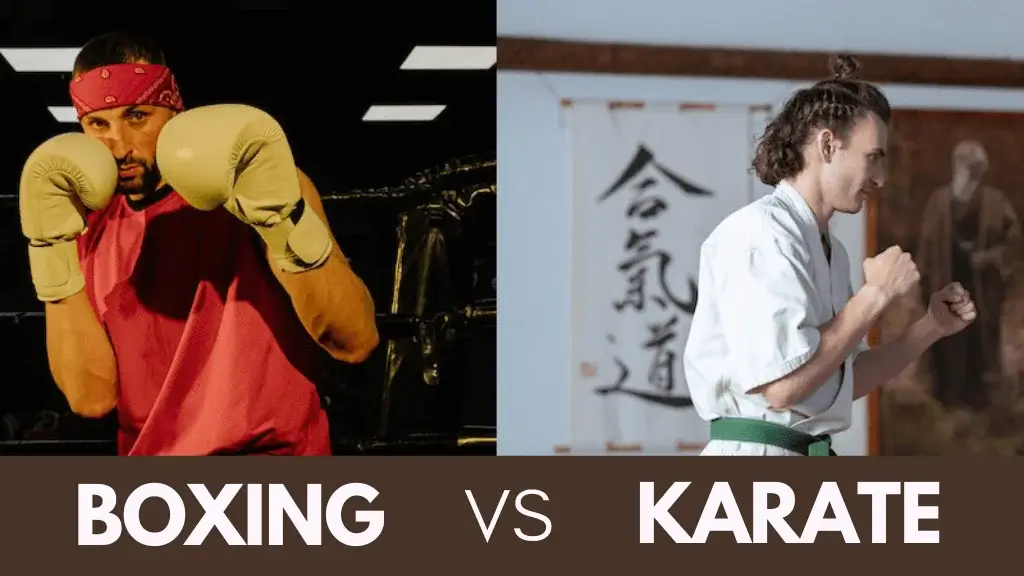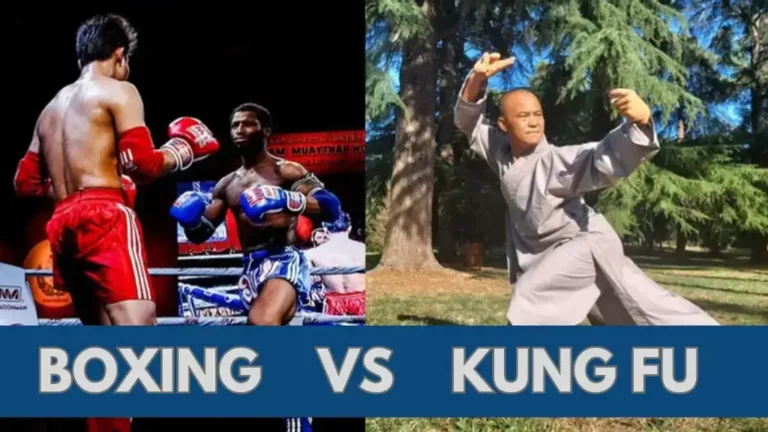Martial arts have always captivated the human imagination, and two of the most prominent disciplines that often find themselves in the spotlight are boxing and karate. These combat sports have distinct characteristics, techniques, and philosophies, making them intriguing choices for practitioners of all skill levels.
Origins of Boxing and Karate
Let’s provide a brief explanation of the origins and history of boxing and karate:
Boxing
Boxing, often affectionately referred to as “the sweet science,” boasts a storied history dating back to ancient Greece. The sport’s roots can be traced to the Olympic Games of 688 BC, where it played a pivotal role in the competition. Over the centuries, boxing underwent a transformative journey, ultimately becoming a widely recognized and regulated sport.
Karate
On the other hand, Karate finds its origins in Okinawa, Japan. Its development is a fusion of indigenous Okinawan combat techniques and influences borrowed from Chinese martial arts. Karate places a strong emphasis on values such as discipline, self-control, and the relentless pursuit of both physical and mental perfection.
Boxing vs Karate
When comparing boxing and karate, one of the most significant differences lies in the rules and objectives of each sport. In boxing, the goal is simple: defeat your opponent by knockout or by gaining more points through clean punches. Karate, in contrast, is a traditional martial art that focuses on self-defense and personal development through kata (forms) and sparring.
Training and Skill Development
Boxers undergo rigorous training, which includes intense cardiovascular workouts, sparring, and bag work. The emphasis is on punching speed and power, along with defensive maneuvers.
Karate practitioners follow a structured training regimen that involves kata, kumite (sparring), and practicing various strikes and blocks. The discipline instills mental toughness and focus.
Physical Fitness and Health Benefits
Both boxing and karate provide a wide array of health benefits. The demanding training regimens associated with these martial arts contribute significantly to overall physical well-being. Here are some of the key advantages:
Cardiovascular Fitness
Both sports involve intense physical activity that elevates heart rate and enhances cardiovascular endurance. The combination of aerobic and anaerobic exercises in boxing and karate helps practitioners develop strong, efficient cardiovascular systems.
Strength
The rigorous training in both boxing and karate is designed to build muscular strength. In boxing, this strength is often focused on the upper body, while karate training engages various muscle groups, contributing to overall physical power.
Flexibility
Karate, in particular, emphasizes flexibility through various kicks, stances, and dynamic movements. This enhances joint flexibility and range of motion, reducing the risk of injury.
Stress Reduction
Engaging in these martial arts provides an effective outlet for stress relief. The physical exertion and focus required during training help reduce stress levels and promote a sense of mental well-being.
Improved Mental Clarity
Both boxing and karate demand concentration and mental presence. Practitioners often report improved mental clarity and heightened focus as a result of their training.
Self-Defense Aspects
Boxing excels in hand-to-hand combat, with a primary focus on punches and intricate footwork. This emphasis equips practitioners with practical skills for self-defense in real-world situations where close-quarters combat may be necessary. The sport’s combination of powerful punches and agile footwork is particularly effective for countering threats.
Karate, with its emphasis on strikes, kicks, and precise blocks, imparts valuable self-defense skills. Karateka (karate practitioners) are trained to respond swiftly and effectively to potential threats. The discipline equips individuals with the physical and mental readiness required to protect themselves in a variety of self-defense scenarios.
Competitive Aspects
Boxing features a thriving professional scene, marked by world-renowned events like the World Heavyweight Championship. These high-profile bouts capture the imagination of sports enthusiasts worldwide, offering thrilling and fiercely competitive matches that often lead to legendary rivalries.
In contrast, karate offers its unique competitive landscape. Although it may not enjoy the same level of mainstream recognition as boxing, it hosts a variety of competitive tournaments. Participants in karate tournaments demonstrate their skills in kata (predefined forms) and kumite (sparring), showcasing the precision, technique, and martial expertise intrinsic to karate.
Choosing the Right Martial Art
When faced with the choice between boxing and karate, it’s crucial to align your decision with your personal goals and interests. If your objective is to acquire self-defense skills while pursuing personal development, karate may be the ideal path for you. On the other hand, if you’re captivated by the world of competitive sports and the intricate art of boxing, then this may be the route that best resonates with your aspirations. Ultimately, the right choice depends on your individual goals and what you hope to achieve through your martial arts journey.
Common Misconceptions about Boxing and Karate
Boxing One common misconception about boxing is that it revolves solely around aggression. In reality, boxing is a sport that demands strategy, precision, and finesse. Boxers rely on well-thought-out tactics, controlled aggression, and an acute understanding of timing and distance to excel in the ring.
Karate Conversely, there’s a misconception that karate is primarily about breaking boards with fists and flashy moves. However, karate is a comprehensive martial art that encompasses self-defense, discipline, and personal development. While board-breaking can be a part of demonstrations, it represents just one facet of this multifaceted martial discipline.
Conclusion
In the battle of boxing vs karate, there is no clear winner. Each martial art has its unique strengths and appeals to different individuals. Boxing showcases the art of the punch and footwork, while karate emphasizes discipline and personal development. It ultimately comes down to personal preference and goals.
FAQs
Which is more physically demanding, boxing or karate?
Both sports are physically demanding but in different ways. Boxing focuses on cardiovascular fitness and strength, while karate emphasizes flexibility and discipline.
Can I practice both boxing and karate simultaneously?
Certainly! Many athletes cross-train in multiple martial arts to enhance their skills and knowledge.
Is one martial art safer than the other?
Safety largely depends on the training and sparring methods used. With proper instruction, both boxing and karate can be practiced safely
Related Post:
- How to Get Stronger in Boxing Beta
- Boxing vs Street Fighting – Unveiling the Differences
- Boxing vs Wing Chun – Which Martial Art Reigns Supreme




